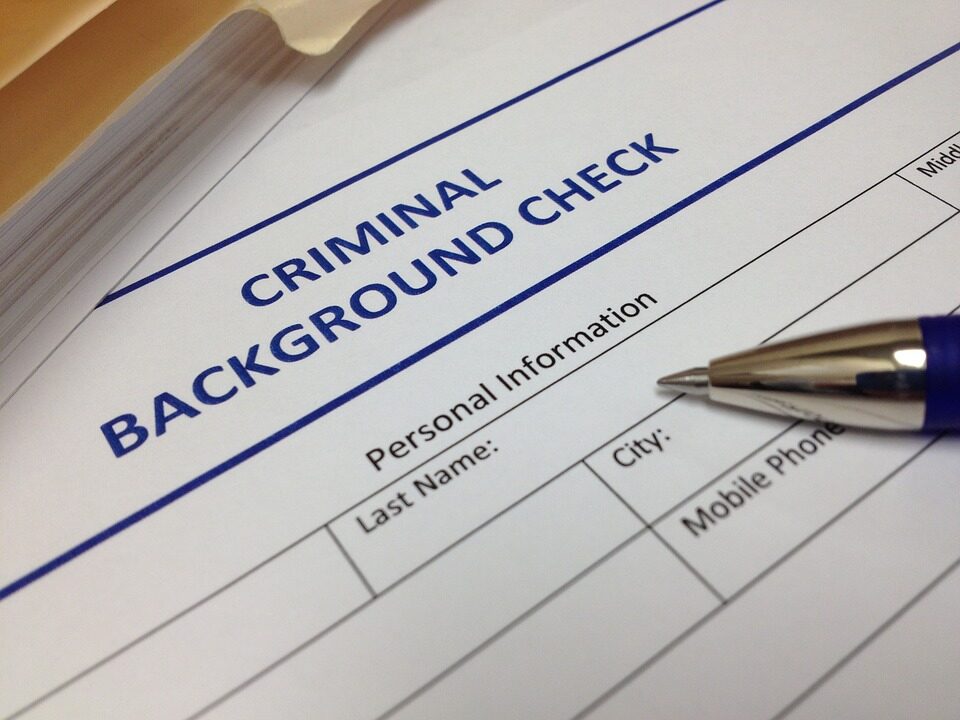How to Do a Background Check Before Hiring Someone in the UK

Every business owner wants to hire the best person for the job. You must do everything in your power to ensure that this person will be a good fit for your company before hiring them. One way to do this is by performing a background check on someone before they are hired, and if their past doesn’t line up with what you’re looking for, it might not be worth moving forward with them as an employee.
What Is A Background Check?
It is a process to verify a person’s background, notably any criminal history that they might have. Background checks can be conducted by employers or third-party companies that provide this service. Essentially, these checks are performed to determine if they are trustworthy or not, which is vital in many industries. The background check specialists at dbschecks.org.uk note that they are typically used on potential employees working with vulnerable people. In The UK, these are called DBBS checks and are conducted by the Disclosure and Barring Service. Individuals can perform the most basic checks at their request, but only employers can do the more advanced checks.
Is It Necessary For A Company To Screen Its Employees?

In the UK, a background check is an essential part of any hiring process. It is vital that this person has no criminal record and is not banned from working in specific industries. Fundamentally, employers want to ensure that they are qualified for the job they are applying for and have no history of workplace issues. A company needs to screen its employees before hiring them to help the company remain compliant, reduce fraud risk, and improve customer experience. It can help reduce a company’s risk by informing it of any criminal history or other concerns that might negatively impact its customers or business operations.
In most cases, it is necessary, while in others, it is up to the company if they want to perform the check for their own reason. For example, if your business is not in a regulated industry but deals with large amounts of cash, you may decide to have potential managers checked for any history of theft or fraud, etc. While this might not immediately exclude them from the job, it does help the employer make an informed decision. Nevertheless, the sectors that require a check to be performed by law include:
• Teachers.
• Social workers.
• Childminders.
• Foster carers.
• Medical professionals.
• Solicitors.
• Barristers.
• Veterinary surgeons.
• Accountants.
• Those who are working with critical infrastructure.
Which Check Types Are There?

Employers can perform three main types of DBS checks on an individual, which includes:
• Basic DBS Check: Individuals can get a basic check by themselves, and it will uncover all unspent convictions and cautions.
• Standard DBS Check: Standard DBS checks can only be conducted by employers. A criminal background check at this tier gives an employer access to applicants’:
• Cautions.
• Warnings.
• Reprimands.
• Convictions.
• Enhanced DBS Check: This is the highest tier and provides the same information as the standard option and any police reports about the individual.
What Will a DBS Check reveal?
As explained in the previous point, selecting the appropriate tier will reveal more information about a person that employers may find helpful. However, some details need further explanation. For example, basic checks will reveal unspent convictions, while the other two will show both spent and unspent ones. What does the distinction between spent and unspent convictions mean?
The Rehabilitation of Offenders Act 1974 defines spent convictions as convictions that have reached a set period and are removed from a person’s criminal record. A conviction that hasn’t yet reached this specified time is known as an unspent conviction. However, there is more to it than that because someone who has been incarcerated for four or more years will have that conviction on their background check no matter what.
Does Each Constituent Country Have A Version?

England and Wales are subject to the same DBS checks, while Scotland uses their Disclosure Scotland service for background checks. In terms of the information they provide, they are relatively similar. However, the main difference is how convictions are classified in Scotland under the Rehabilitation of Offenders Act 1974. When it comes to Northern Ireland, they also use a separate service called AccessNI. It has similarities to the other two services but is more tailored toward the Northern Irish population.
How Do Employment Background Checks Work?

A standard check involves the following:
• An applicant provides copies of identification documents, and they must be originals or certified copies.
• Applicant completes a DBS application form.
• There will be a criminal records check to show any cautions, convictions, custody sentences for England and Wales, Scotland, and Northern Ireland.
• The applicant must provide three references (one of which should be professional).
• The applicant can request to make their records private for up to two years.
• After the applicant has gone through the background check, a certificate is mailed to him or her.
CRB vs. DBS Check: What’s the Difference?
In both cases, there is little difference. This is simply a list of the different criminal background checks available over the last fifteen years. The Criminal Records Bureau launched its version during the early 2000s, referred to as a CRB check. The Disclosure and Barring Service (DBS) replaced these checks in 2012 when it introduced a streamlined vetting process.
A DBS check is offered by the DBS, an independent public body regulated by the Home Office. The DBS was formed by merging the Criminal Records Bureau and the Independent Safeguarding Authority (ISA). The role of the DBS has been streamlined to include criminal record checks and checks against barring lists for children and vulnerable adults as needed. This process was previously handled separately by CRB and ISA.
If you are looking to hire someone in the UK, you must conduct a thorough background check before making any final decisions. The more information you have about their past, the better equipped you will be to make an informed decision on whether they would be a good fit for your company or not.




